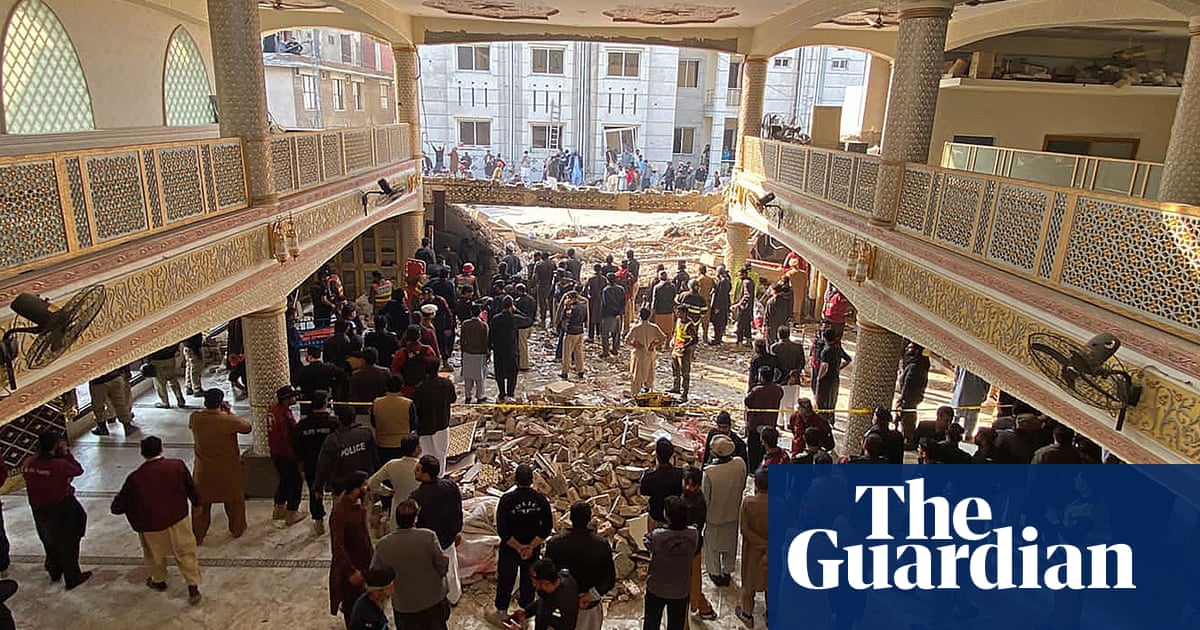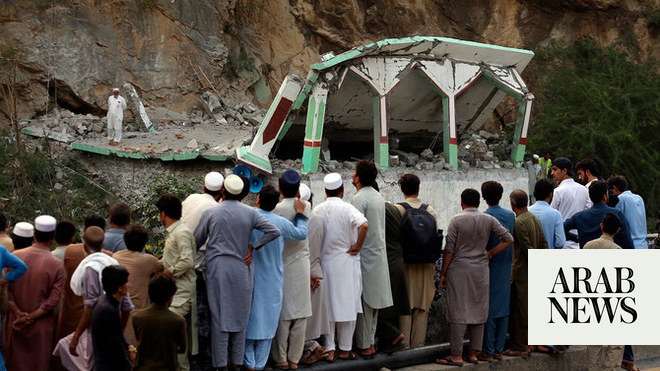
At least 59 people have been killed and more than 150 injured in a suicide bombing carried out at a mosque in the city of Peshawar, as the security situation in the country continues to deteriorate.
The blast struck as 300 worshippers were praying in the mosque, located in the Police Lines area of the Peshawar, in Khyber Pakhtunkhwa province, where the city’s police headquarters and counter-terrorism officers are based. Most of those inside the mosque were thought to be officers.
The impact of the explosion collapsed the roof and one wall of the mosque and injured many people, said Zafar Khan, a local police officer.
Witnesses said the blast took place in the main hall just as afternoon prayers were about to begin and worshippers were packed tightly inside. According to officials, the bomber had been standing in the front row.
A commander for the Pakistani Taliban, known as Tehreek-e-Taliban Pakistan (TTP), took responsibility for the attack, claiming it was revenge for a fighter killed in Afghanistan last year.
But hours later, a TTP spokesperson distanced the group from the bombing, saying it was not its policy to target mosques, seminaries and religious places. His statement did not address the previous claim of responsibility.
The TTP, which is believed to be close to al-Qaida, has waged an insurgency in Pakistan for the past 15 years, fighting for stricter enforcement of Islamic laws and the release of jailed members, and has been responsible for multiple deadly attacks in the past.
The group has recently intensified its militancy after a ceasefire with the government broke down in November. It has claimed responsibility for almost a dozen attacks in recent months, mostly targeting military and police in the Khyber Pakhtunkhwa province which borders Afghanistan.
Rescuers at the blast scene scrambled to pull worshippers out from beneath heavy debris from the fallen roof, with at least 20 thought to still be trapped as night fell. Khan said several of the wounded were in a critical condition at a hospital and there were fears the death toll would rise.
Khan said between 300 and 400 police officers were in the area when the blast took place and the bomber had breached multiple layers of security to enter the mosque. “It is apparent that a security lapse occurred,” he told reporters.
Meena Gul, a police officer, said he was inside the mosque when the bomb went off and could hear cries and screams after the explosion.
The Pakistani prime minister, Shehbaz Sharif, called it a “suicide attack” and ordered authorities to ensure the best possible medical treatment to the survivors.
“Terrorists want to create fear by targeting those who perform the duty of defending Pakistan,” he said in a statement. After visiting the scene, Sharif said the bombing was “no less than an attack on Pakistan”.
The former prime minister Imran Khan said better intelligence gathering and security for police forces was needed to “combat the growing threat of terrorism”.
Though the TTP is a separate entity from the Taliban in Afghanistan, the Taliban’s ascension to power in Kabul has been seen to empower the group in neighbouring Pakistan, especially in Khyber Pakhtunkhwa.
In January, a group of Pakistan Taliban militants attacked a police station in Khyber Pakhtunkhwa, and in December dozens of TTP detainees overpowered their guards at a counter-terrorism centre in the Bannu district of Khyber Pakhtunkhwa, took hostages and seized control of the facility for more than 24 hours.
Peshawar, the embattled capital of Khyber Pakhtunkhwa, has been the target of frequent militant attacks and suicide bombings, most recently in March 2022 when 56 worshippers were killed in a blast at a Shia mosque in the city, with Islamic State claiming responsibility.
Following the bombing, security was beefed up in other big cities including Islamabad, where security at all entry and exit points of the capital city was increased and snipers were deployed at “important points and buildings”.










